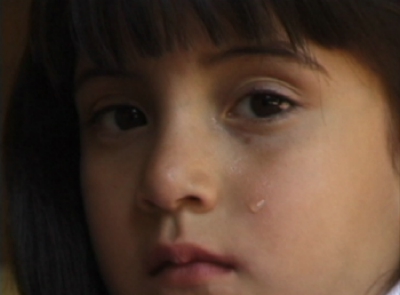.
 |
|
Pay attention to the signs of child abuse
Every adult in any society must serve as a guardian of all the children growing up in it
by Claudia Quigg
I was astonished recently when a lovely, successful middle-aged man I know shared with me that during the years he was growing up he suffered some pretty harsh child abuse. He described the abuse in some detail, literally bringing me to tears.
I was moved by his story especially because I knew him during those years. I was enough older that I was an adult when he was yet a 12-year-old. I knew him during the years when this abuse was occurring regularly. I might have been able to help.
And I didn't suspect a thing. |
Moving through my own guilt about this, I have looked into the signs of child abuse that I might have missed. Sure enough, he did exhibit some of these characteristics, but I never connected the dots.
It seems to me that if I could have missed this, others may also look right past it. After all, unless we have experienced abuse ourselves, why would we imagine the unthinkable?
And yet, every adult in any society must serve as a guardian of all the children growing up in it.
For this reason, I would like to share some of the signs that a child may be a victim of neglect or abuse, published by the Federal Children's Bureau.
A neglected child may lack adult supervision, miss a lot of school, beg or steal food or money or lack hygiene or medical care.
An abused child may show sudden changes in behavior or school performance. A former A-student who fails to turn in assignments should have a second look.
An abused child may not receive help for physical or medical problems brought to the parents' attention. These parents may want to avoid discovery.
An abused child may have learning or concentration problems. If a formerly attentive child seems hard to engage, adults would do well to pay attention.
An abused child may seem always watchful, as though preparing for something bad to happen. These kids are often “on edge.”
An abused child may bully other children or abuse animals.
An abused child may be overly compliant, passive, or withdrawn. These children often go to great lengths to avoid drawing negative attention to themselves.
An abused child may come to school or other activities early, stay late and not appear to want to go home.
An abused child may be reluctant to be around a particular person. There may be a very good reason Tommy doesn't like Uncle Jerry.
Finally, an abused child may eventually disclose maltreatment. If a child actually speaks up, he is hoping an adult will help.
The confusing thing is that often abused children seem great. In fact, some abused children are overly responsible and eager to please, hoping to avoid punishment by their perfection. These children may seem model citizens, pleasing adults in such a way that no one thinks to wonder about abuse.
If you see signs of neglect or abuse in any child, talk to someone else who knows the child and compare notes. Don't be afraid to ask the child about it if you suspect abuse. Convey that you are a safe person to confide in. And if you have a good relationship with the parents, ask them if everything is OK at home.
Child abuse is a terrible thing, but it can be stopped and both children and adults can find resilience with the right help. The first step is usually supported by a loving adult with open eyes who simply cares enough to get involved.
|